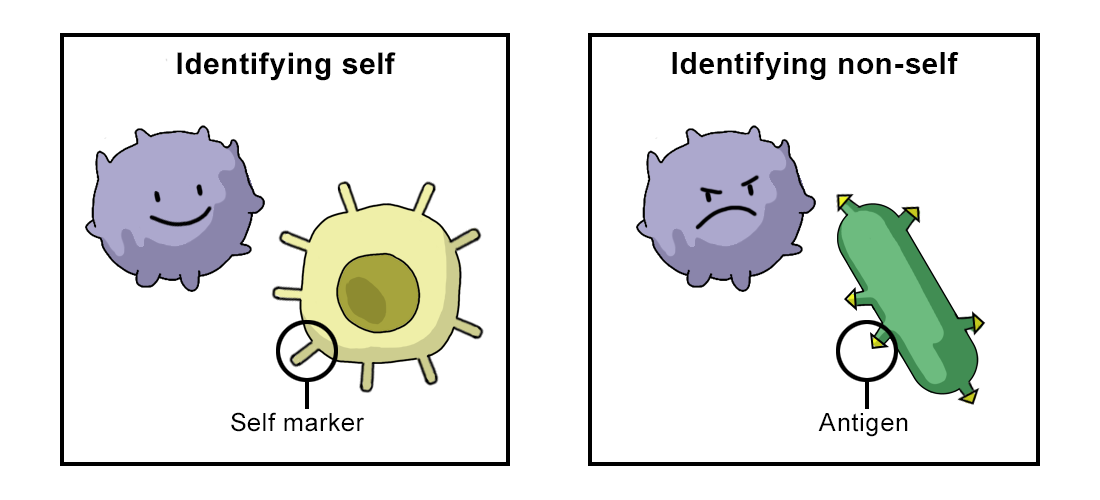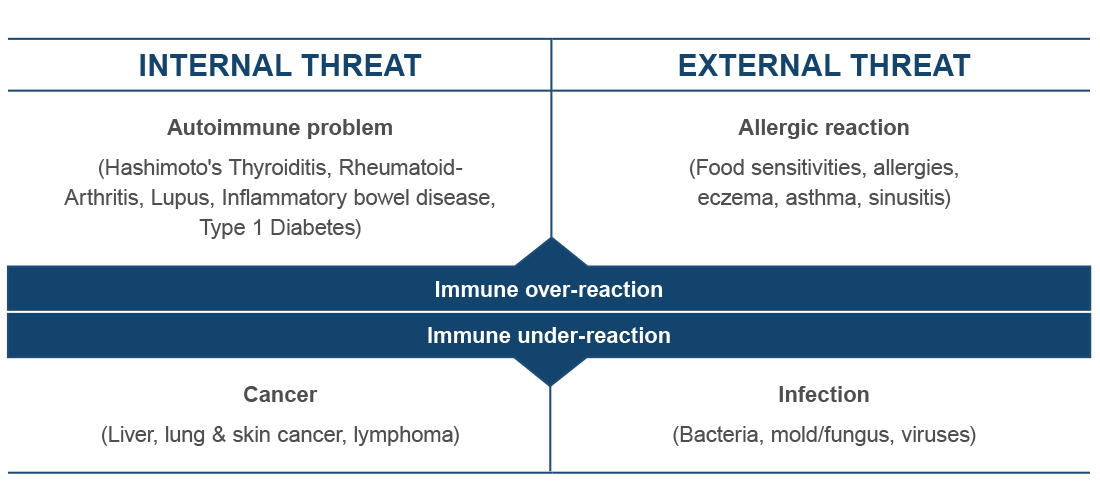ALLERGY: THE HISTORY OF A MISUNDERSTANDING
1.11
A defence system that sometimes malfunctions
Although the immune system’s main purpose is the protection of the body from infections and the elimination of modified or mutated cells, it can malfunction, too. In this article you will learn more about the different types of disorders of the immune system.
The immune system protects our body from external and internal agents that might damage it. The immune system is best understood as a complex network that grants our defence.
‘Immune’ stems from the Latin word ‘immunis’. Among other things this adjective describes someone who was exempt from taxes or somebody who was spared a rather cumbersome liability. In fact, the immune system serves physiological functions that help to spare our body occurrences that are detrimental to its health.
As a defence structure the immune system first has to be able to differentiate between elements that belong to its own organism and those that are foreign.

Distinguish self and foreign. MHC refers to Major Histocompatibility Complex.
On this basis, it protects the body fighting, eg infections provoked by intruding foreign agents. It has also the power to eliminate modified or mutated cells that belong to its own organism – for instance cells that are infected by a virus or tumour cells. And last but not least the immune system assists mending processes, as for example tissue repair when a wound is healing.
However, the immune system is not immune to malfunctioning. There are several types of disorders that may unsettle it. The system might overreact or underreact to agents.

Malfunctioning of the immune system.
Hypersensitivity is an umbrella term for an immune disorder to an exogenous innocuous agent. It is characterized by an exaggerated unnecessary immune response.
One important example of hypersensitivity is allergy. An innocuous external agent provokes an unnecessary defence reaction. Examples include pollen in hay fever, peanuts in food allergy, or nickel present in fashion jewellery, resulting in a contact allergy.
The second example is autoimmunity. In this case, the immune system attacks cells, organs, or other structures from its own body, mistaking them for foreign elements. As a result, particular organs become inflamed and are damaged – as joints in rheumatoid arthritis or blood vessels in vasculitis.
But the immune system may also be too weak to protect the body. This occurrence is called immune deficiency. Immune deficiency results in infections not necessarily anticipated. It might even be a cause of cancer. We do know these disorders from patients with an inborn immune defect or acquired in AIDS, in patients with cancer or patients that are under immunosuppressive medication. Can you think of diseases in which immunosuppressive medication is prescribed?
Téléchargements
